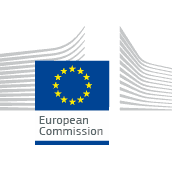
Safety of operating nuclear power plants and research reactors
Deadline: Nov 8, 2023
CALL EXPIRED
CALL EXPIRED
Waste Management
Education and Training
Physics
Research
Artificial Intelligence
Project results are expected to contribute to some of the following expected outcomes:
- Make substantial progress in implementing, on the part of licence holders and regulators, the requirements of the Nuclear Safety Directive[1], Basic Safety Standards Directive[2] and Radioactive Waste Management Directive[3], and topical peer reviews[4] for the current and planned nuclear power plants and research reactors.
- Develop and/or deploy solutions for ageing management and/or the evaluation of reactors’ safety margins using, where appropriate, cross-cutting technologies like digitalisation, modelling and simulation.
- Further develop and validate advanced structural integrity assessment methods and evaluate defect tolerance and safety margins in aged and potentially degraded plants.
- Quantify the safety margin in state-of-the-art integrity assessment methodologies on key nuclear components under real loading conditions.
- Draw up best practice guidance for developed assessment methods, disseminate the project outputs, and provide appropriate training in the use of developed assessment methods.
- Establish, for example through regular exchanges with regulatory bodies and/or their technical support organisations, a shared and coherent approach among regulators to safety requirements for different nuclear technologies, further improving safety across the Community.
- Develop competences and ensure continuity in short- to long-term research. This will allow some Member States to contribute to the decarbonisation of energy production according to and respecting the EU technology neutrality principle and thus increase Member State and EU energy security.
Euratom research will be driven by the increasing importance of long-term operation (LTO), and the fact that the current and planned innovative fleet will consist mainly of Light Water-cooled Reactors.
Proposals should address challenges related to ageing management and/or the evaluation of safety margins of the reactors’ fleet. Such challenges relate, among other things, to the development of methods and tools to increase safety, the availability of systems, structures and components needed for reliable and safe management, core physics and thermal hydraulics, monitoring, digital including artificial intelligence, internet of things and digital twins, modelling and simulation, as well as prevention and mitigation strategies for long-term operation.
Adequate safety margins, the early detection of degradation and prevention of failures in pressure boundary components is of high priority to ensure the important third physical barrier in light water reactors. During the long operating life of nuclear power plants (40-80 years), the steel pressure boundary components are subjected to threats from non-linear processes such as ageing, different degradation mechanisms and load history effects. This highlights the importance of research activities to ensure proper analysis of damage tolerance, degradation, loads and safety margins, and to ensure appropriate programmes for inspections, repairs and the replacement of components.
[1] Council Directive 2009/71/Euratom of 25 June 2009 establishing a Community framework for the nuclear safety of nuclear installations (OJ L 219, 25.7.2014, p. 42) as amended by Council Directive 2014/87/Euratom of 8 July 2014.
[2] Council Directive 2013/59/Euratom of 5 December 2013 laying down basic safety standards for protection against the dangers arising from exposure to ionising radiation, and repealing Directives 89/618/Euratom, 90/641/Euratom, 96/29/Euratom, 97/43/Euratom and 2003/122/Euratom OJ L13, 17.1.2014, pp. 1-73.
[3] Council Directive 2011/70/Euratom of 19 July 2011 on establishing a Community framework for the responsible and safe management of spent fuel and radioactive waste, OJ L199, 2.8.2011, pp. 48-56.
[4] https://www.ensreg.eu/
Public link: Only for registered users
 Euratom Research and Training Programme (EURATOM)
Euratom Research and Training Programme (EURATOM)
Please Log In to See This Section